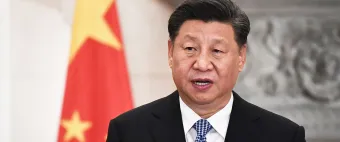Don’t Fear Saudi Arabia’s Pivot to China

Don’t Fear Saudi Arabia’s Pivot to China
Saudi Arabia’s growing ties with China ultimately complement U.S. efforts to contain Iran.
Chinese president Xi Jinping’s recent trip to meet with the members of the Gulf Cooperation Council (GCC) set off a storm of anxiety in Washington. But it’s important to note that much of what was agreed to in these meetings is actually designed to marginalize Iran in regional and trans-regional affairs—a cause shared by the United States and many of its GCC partners.
The Saudi Comprehensive Strategic Partnership Agreement with China comes just two years after Beijing signed a similar deal with Iran. The timing of the deals is thus not a coincidence but a calculable act by Saudi Arabia to contain Iran and curtail any gains it may have secured through such a strategic partnership. Hence, despite popular belief to the contrary, the United States stands to gain from the agreement, which will help ensure Iran's regional and global power remains checked.
Ali Ahmadi is a scholar of sanctions and geoeconomics. He is currently an Executive Fellow at the Geneva Center for Security Policy (GCSP) and a Research Fellow at the Brussels-based Vocal Europe foreign policy think tank. You can follow him on Twitter and Linkedin.
Ahmed Alqarout is a London-based expert in international political economy. His research focuses on the impact of financial and economic policies on global and regional stability with a special focus on the Middle East and Africa.
Disclaimer: This publication was originally published on National Interest. The views, information and opinions expressed in this publication are the author’s/authors’ own and do not necessarily reflect those of the GCSP or the members of its Foundation Council. The GCSP is not responsible for the accuracy of the information
